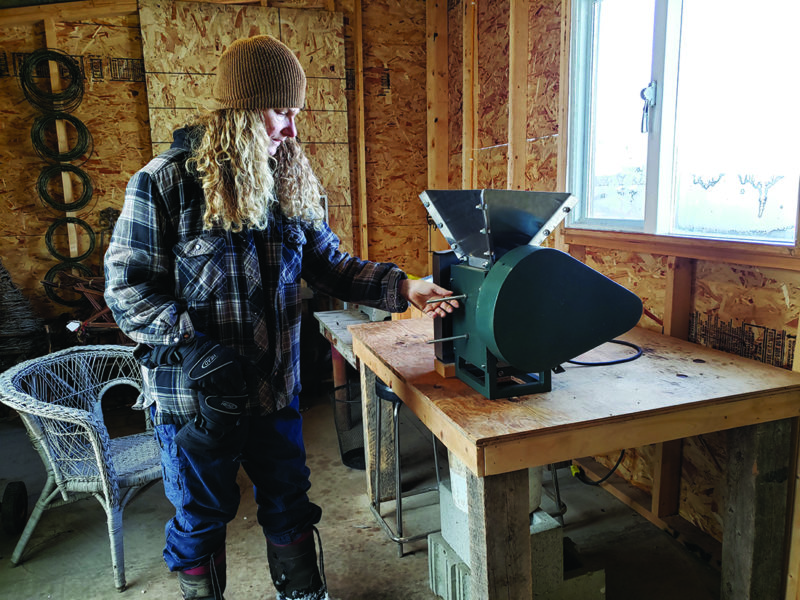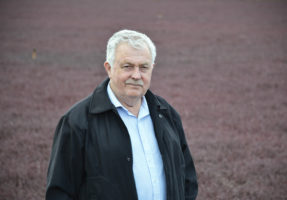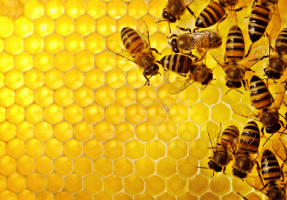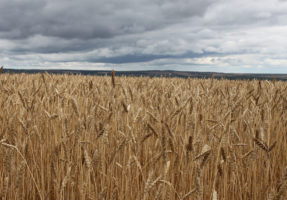KELOWNA – After 10 years in the growing phase, a Kelowna agro-forestry producer is gathering the seeds of her labour and looking at increasing processing capability for herself and others.
Twenty years ago, Brenda Dureault, then a nurse, moved to a 26-acre property owned by her father to raise her children. Curly Frog Farm, as she named it, was a pasture with a natural pond. After purchasing the land in 2009, she increased her farming focus and searched for products she could self-manage and were tolerant of water because the creek flowing through her land regularly submerges a sizeable chunk of the farm.
“We’ve canoed over this land,” Dureault says, pointing to logs water-lifted from pond areas and deposited among her trees.
The creek is classified as environmentally sensitive, so there’s little opportunity to block or divert the water. Determined to find a workable crop, she planted black walnuts, a native North American species suggested by the BC Ministry of Forests, Lands, Natural Resource Operations and Rural Development. After germinating the seed herself, she planted the first rows in 2009-10.
Black walnuts have long taproots. In addition to their ability to draw up water, the nuts have a unique flavour and nutritional qualities, as well as producing high-value hardwood lumber if the trees are straight and free of defects.
Dureault has continually collected seed from the best trees and conducted selective breeding in the small greenhouse attached to her home to improve the quality of her nuts and the potential for the trees to eventually be logged for timber. She also wants them to be resilient to climate change.
Optimum land use
Making the best use of the land, she interspersed the walnut trees with Christmas trees, which will be ready for cutting in 2020. She also grows berries, herbs, willows for crafts (which she sells at markets and online), as well as pawpaw trees. She’s planted 400 pawpaws, many on chinampas, an ancient Aztec way of growing on land with high water tables.
“Mine were built a few years ago in a wetlands
co-operative project with the BC Wildlife Federation. We excavated soils two feet to create long narrow canals with mounds adjacent. The canals fill with water creating wetlands and the strips of higher ground brought more land for productive agriculture,” says Dureault, who’s still waiting for the pawpaws to bear fruit.
Waiting is not the case, however, with the nuts. Her maturing trees yielded about 600 pounds of hulled black walnuts last year; full production can be up to 1,500 pounds per acre.
Unlike the English walnuts most people are familiar with, black walnuts are encased in a hull and have an extremely hard shell. With smaller quantities, Dureault used a hand-cracker as well as an electric nutcracker made by a local friend to break the nuts apart and harvest the meat. It works well with softer shelled nuts but the black walnuts had to go through the electric cracker four to five times to sufficiently break them, a time-consuming process producing about 8 to 12 ounces of nuts an hour.
“I separate the nutmeat by dumping cracked nuts onto a box outfitted with two different-sized removable screens to sift out the small nut pieces. Then I have to put the leftovers back into the cracker for re-cracking,” explains Dureault. “It’s not economically feasible to process black walnuts by hand as the foundation for a profitable business. I’d like to set up a professional, small-scale commercial nut processing facility to add value to my own crop as well as provide a service to other local nut growers. There are about a dozen growers in the Okanagan Valley who have shown interest in my ability to help them with processing nuts.”
Processing challenges
While the 40 hazelnut growers in BC send their nuts to Fraser Valley Hazelnuts for processing, part of the supply chain for Oregon processors, no similar facility exists for black walnut growers. Dureault reached out to Fraser Valley Hazelnuts, which told her it only processes hazelnuts.
Most equipment is designed for large-scale operations or other walnuts, and is too costly for operations the size of Curly Frog, so Dureault approached UBC Okanagan.
UBCO consistently looks for real-life projects for senior engineering students to tackle, solving a challenge from concept and design to finished product. Dureault hoped students could develop equipment that could process 75 to 100 pounds (or more) of black walnuts an hour. This included a machine to hull and clean the nuts, a cracking machine capable of cracking 600 to 900 lbs of black walnuts an hour and a sorting machine to separate shell from nutmeat once they are cracked.
Student Alex Russell stepped up and worked on the project with a team of students.
“I picked this project from 40 options because with farming, you actually needed to create a tangible thing. And we were also helping someone in the community,” says Russell.
“It’s definitely an improvement and cracks English walnuts beautifully. Some fine-tuning is needed to size the machine to crack smaller nuts like hazelnuts and more engineering is required to determine motor size and RPM to achieve the force of 500 foot-pounds required to crack black walnuts,” says Dureault showing off her new equipment.
Unfortunately, time constraints only let the students build the cracker the first year so she’s gone back.
“The second project is a machine that separates nutmeat from shell as well as to fine-tune/modify the cracker. I’m told they have a prototype already built and tested on English walnuts,” Dureault says.
Dureault encourages other producers to look at students who can offer a fresh perspective, especially when a project’s scope is beyond their capabilities or annual farm income is below the $30,000 required to obtain matching funds from the province.
“I’d like to set up a professional, small-scale commercial nut processing facility to add value to my own crop as well as provide a service to other local nut growers. There are about a dozen growers in the Okanagan Valley who have shown interest in my ability to help them with processing nuts,” she says.
Working with the students taught her more critical thinking and problem solving, how to communicate her ideas and patience. She says it’s a slower process, but economical. As the client, she also owns the design rights and blueprints for her new machine and she made new friends and connections.
“It gives me hope that there are young people interested in agriculture,” she says. “One of the students told me that this project was one of the hardest to do but had the most learning opportunity as it was all hands-on and relevant.’”









 Halal demand rising
Halal demand rising